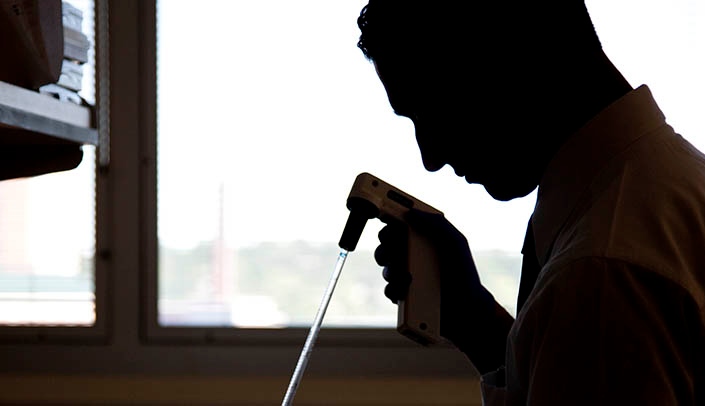Applications are now open for the Clinical Translational Research Mentored Scholar Program (CTR-MSP). This is a degree-seeking program (M.S. or Ph.D.) designed to develop scientists or health professionals who are early career faculty into productive and independent clinical and translational researchers.
During the program, the CTR-MSP scholars can apply for Pilot grant funding ($25,000) to generate preliminary data needed for successful extramural grant applications. Scholars should have a clear idea of the direction of their research at the time they apply to the program. The grant proposal can be made as early as the first semester of their graduate training program, but will not be awarded until they have completed at least one semester of course work and have formalized their project with their graduate advisor and mentorship team.
About CTR-MSP
The CTR-MSP at UNMC started in 2007 as the premiere program to develop scientists or health professionals who are early career faculty stage into productive and independent clinical and translational researchers. The overall aim of the program is to provide multidisciplinary didactic education and practical research grant training to early career faculty, who intend to develop a career in CTR, so they may acquire the skills to design, implement, and report ethically sound, extramurally funded CTR.
The application deadline is April 26.
Eligibility
- The applicant must hold or will be holding a faculty appointment at any College at UNMC at the time of admission to the program. Early career faculty (e.g. M.D., D.P.H., Pharm.D., Ph.D.) with a rank of assistant professor shall be given preference.
- The applicant must meet all admissions requirements set by the UNMC Office of Graduate Studies.
- Minimum of 0.25 FTE of protected time is required.
Curriculum
Leading to M.S. or Ph.D. degree in CTR requires the following elements:
- Mentored research;
- CTR seminars;
- Individualized program of core course work and electives within their chosen track; and
- Responsible Conduct of Research (RCR) training.
Application Materials
- Official transcripts
- Curriculum Vitae
- Letter of support
- From their department chair, college dean or other institutional representative, confirming the applicant will have the necessary protected time to pursue the educational and research requirements of the program. Applicants are required to have a minimum of 0.25FTE of protected time.
- Three letters of recommendation
- Recommendation from dean, chair, or other director plus two additional recommendations.
- If a mentor has been identified, a letter from the mentor is ideal and should state the mentor’s willingness to work with the applicant and offer whatever resources they may have to pursue the area of research. The mentor should have a history of external research funding, the scholar’s project should be independent of the mentor’s ongoing research, and in most cases would not be the applicant’s immediate supervisor unless strong justification is given (e.g., division chief, chair, director, dean)
- Detailed narrative
- Click here for in-depth requirements on the detailed narrative (page 2).
- Mini-proposal: Prepare a three-page mini-proposal of proposed research. Include: specific aims, significance, innovation and approach following NIH guidelines.
For more information, contact Jennifer Escher, interdisciplinary programs coordinator, at 402-559-5141 or via email, or contact program director Lani Zimmerman, Ph.D., at 402-472-3847 or via email.
